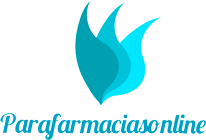Behavioral therapies can also enhance the effectiveness of medications and help people remain in treatment longer. Relapse rates for drug use are similar to rates for other chronic medical illnesses. If people stop following their medical treatment plan, they are likely to relapse. Recovery goals are objectives that a person sets for themselves that are related to their addiction recovery. Recovery is not a one-size-fits-all thing, and everyone’s goals may look different. SUDs can lead to significant problems in all aspects of a person’s life.
The 2024 Gallery of Hope: Artistic Expressions of Recovery Across the Nation
Finally, break mid-range goals down into their essentialsteps – short-term goals. Break these long-term goals into a few essential steps –and call these mid-range goals. Regardless of whether you are currently in an addiction treatment program, you have already finished a program, or you are going it alone in attempting to manage your addiction, you need to have a https://w-shakespeare.ru/comedy/ecomedy10.html plan. It’s important to consistently assess and modify the treatment plan according to the client’s advancements, obstacles, or any shifts in their situation.
Related Objectives

Additionally, we’ll discuss the importance of considering external support systems and monitoring your progress to make necessary adjustments along the way. Let’s dive into these invaluable insights to empower your recovery journey. SMART goals are crucial in addiction recovery for several reasons.
- Stay accountable to yourself and seek support from others to stay motivated and focused.
- For example, attend a certain number of support group meetings per week for a specific number of months or reduce substance use by a certain percentage.
A Beginner’s Guide to Setting SMART Goals in Recovery

Keep in mind the best goals are personalized to you, so don’t be afraid to personalize the goals you find. SMART is an acronym for Specific, Measurable, Achievable, Relevant and Timely. Keeping these components in mind will help you focus on making goals clear and attainable. Using the SMART goal strategy prevents you from making vague goals and facing disappointment because your plans are out of reach.
- Sticking to just a couple of goals at a time makes a person less likely to burn out and more likely to be successful.
- Recovery goals don’t necessarily only include plans related to sobriety.
- An addiction recovery goal can easily be overlooked or swept under the rug without some sort of accountability.
- It’s crucial to blend medication-assisted treatment with counseling and behavioral therapies to address the psychological elements of addiction comprehensively.
Why a Treatment Plan Matters
- You can use this section as a brief reminder for specific interventions or methods that you would like to incorporate into future sessions.
- Setting clear, measurable goals is the cornerstone of an effective treatment plan.
- It should not be used in place of the advice of your physician or other qualified healthcare provider.
- This is an important detail to investigate for several reasons.
- When people enter treatment, addiction has often caused serious consequences in their lives, possibly disrupting their health and how they function in their family lives, at work, and in the community.
- This allows you to identify patterns, make necessary adjustments, and celebrate achievements.
Our commitment to our clients extends beyond their time at our facility. This is to ensure a smooth transition into post-treatment life. Treatment goals for substance use disorder recovery may need modification to address both concerns together. This ensures a comprehensive https://livestones.ru/how-to-properly-respond-to-rudeness-how-to-resist-and-how-to-deal-with-it-rudeness-is-what.html and integrated approach to treatment. Treatment goals for substance use disorders need a holistic approach.

Setting specific goals provides clarity, focus, and direction in addiction recovery. Clearly define what you want to achieve and when to track progress and stay motivated. In aftercare, we will provide you with additional ongoing counseling and other support to help avoid those setbacks. You’ll also be invited to join 12-step anonymous programs made up of others on their recovery journeys. One of the crucial elements of aftercare will be to help you set goals for long-term recovery.
Achieve Long-Term Recovery at Santé Center For Healing
- Setting a goal to lose weight, such as aiming to lose 10 pounds in 3 months, can significantly enhance physical health and support your recovery journey.
- Remember, while SMART Recovery empowers you with tools and community support, SMART goals illuminate your personal path to healing and self-discovery.
- Relevant goals focus on the specific needs and challenges of the individual, taking into account their unique circumstances.
- By setting goals that are Specific, Measurable, Achievable, Relevant, and Time-bound, individuals can define desired outcomes and track progress effectively.
- If you can identify your motivations, understand your challenges and recognize that the outcome will be worth the effort, you will be ready to create your plan.
- They can also include goals that apply to different areas of life, such as personal relationships, getting a job, spirituality or improving one’s financial health.
It should contribute positively to your physical and mental well-being. For example, improve physical and mental well-being through exercise and mindfulness. Stopping drug use is just one part of a long and https://comprarvimaxnobrasil.com/lengthy-island-health-news-articles-suggestions-recommendation.html complex recovery process.

Deje su comentario
Debe iniciar sesión para escribir un comentario.